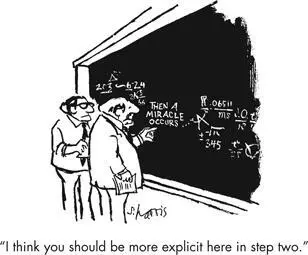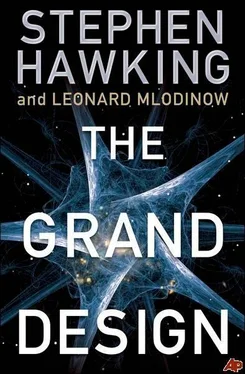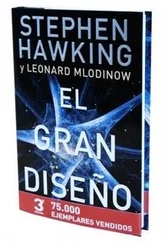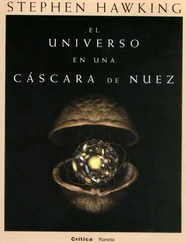Opinions about the answer to the second question have been sharply divided. Plato and Aristotle, the most influential ancient Greek writers, held that there can be no exceptions to the laws. But if one takes the biblical view, then God not only created the laws but can be appealed to by prayer to make exceptions-to heal the terminally ill, to bring premature ends to droughts, or to reinstate croquet as an Olympic sport. In opposition to Descartes’s view, almost all Christian thinkers maintained that God must be able to suspend the laws to accomplish miracles. Even Newton believed in miracles of a sort. He thought that the orbit of the planets would be unstable because the gravitational attraction of one planet for another would cause disturbances to the orbits that would grow with time and would result in the planets either falling into the sun or being flung out of the solar system. God must keep on resetting the orbits, he believed, or “wind the celestial watch, lest it run down.” However, Pierre-Simon, marquis de Laplace (1749-1827), commonly known as Laplace, argued that the perturbations would be periodic, that is, marked by repeated cycles, rather than being cumulative. The solar system would thus reset itself, and there would be no need for divine intervention to explain why it had survived to the present day.
It is Laplace who is usually credited with first clearly postulating scientific determinism: Given the state of the universe at one time, a complete set of laws fully determines both the future and the past. This would exclude the possibility of miracles or an active role for God. The scientific determinism that Laplace formulated is the modern scientist’s answer to question two. It is, in fact, the basis of all modern science, and a principle that is important throughout this book. A scientific law is not a scientific law if it holds only when some supernatural being decides not to intervene. Recognizing this, Napoleon is said to have asked Laplace how God fit into this picture. Laplace replied: “Sire, I have not needed that hypothesis.”
Since people live in the universe and interact with the other objects in it, scientific determinism must hold for people as well. Many, however, while accepting that scientific determinism governs physical processes, would make an exception for human behavior because they believe we have free will. Descartes, for instance, in order to preserve the idea of free will, asserted that the human mind was something different from the physical world and did not follow its laws. In his view a person consists of two ingredients, a body and a soul. Bodies are nothing but ordinary machines, but the soul is not subject to scientific law. Descartes was very interested in anatomy and physiology and regarded a tiny organ in the center of the brain, called the pineal gland, as the principal seat of the soul. That gland, he believed, was the place where all our thoughts are formed, the wellspring of our free will.

Do people have free will? If we have free will, where in the evolutionary tree did it develop? Do blue-green algae or bacteria have free will, or is their behavior automatic and within the realm of scientific law? Is it only multicelled organisms that have free will, or only mammals? We might think that a chimpanzee is exercising free will when it chooses to chomp on a banana, or a cat when it rips up your sofa, but what about the roundworm called Caenorhabditis elegans-a simple creature made of only 959 cells? It probably never thinks, “That was damn tasty bacteria I got to dine on back there,” yet it too has a definite preference in food and will either settle for an unattractive meal or go foraging for something better, depending on recent experience. Is that the exercise of free will?
Though we feel that we can choose what we do, our understanding of the molecular basis of biology shows that biological processes are governed by the laws of physics and chemistry and therefore are as determined as the orbits of the planets. Recent experiments in neuroscience support the view that it is our physical brain, following the known laws of science, that determines our actions, and not some agency that exists outside those laws. For example, a study of patients undergoing awake brain surgery found that by electrically stimulating the appropriate regions of the brain, one could create in the patient the desire to move the hand, arm, or foot, or to move the lips and talk. It is hard to imagine how free will can operate if our behavior is determined by physical law, so it seems that we are no more than biological machines and that free will is just an illusion.
While conceding that human behavior is indeed determined by the laws of nature, it also seems reasonable to conclude that the outcome is determined in such a complicated way and with so many variables as to make it impossible in practice to predict. For that one would need a knowledge of the initial state of each of the thousand trillion trillion molecules in the human body and to solve something like that number of equations. That would take a few billion years, which would be a bit late to duck when the person opposite aimed a blow.
Because it is so impractical to use the underlying physical laws to predict human behavior, we adopt what is called an effective theory. In physics, an effective theory is a framework created to model certain observed phenomena without describing in detail all of the underlying processes. For example, we cannot solve exactly the equations governing the gravitational interactions of every atom in a person’s body with every atom in the earth. But for all practical purposes the gravitational force between a person and the earth can be described in terms of just a few numbers, such as the person’s total mass. Similarly, we cannot solve the equations governing the behavior of complex atoms and molecules, but we have developed an effective theory called chemistry that provides an adequate explanation of how atoms and molecules behave in chemical reactions without accounting for every detail of the interactions. In the case of people, since we cannot solve the equations that determine our behavior, we use the effective theory that people have free will. The study of our will, and of the behavior that arises from it, is the science of psychology. Economics is also an effective theory, based on the notion of free will plus the assumption that people evaluate their possible alternative courses of action and choose the best. That effective theory is only moderately successful in predicting behavior because, as we all know, decisions are often not rational or are based on a defective analysis of the consequences of the choice. That is why the world is in such a mess.
The third question addresses the issue of whether the laws that determine both the universe and human behavior are unique. If your answer to the first question is that God created the laws, then this question asks, did God have any latitude in choosing them? Both Aristotle and Plato believed, like Descartes and later Einstein, that the principles of nature exist out of “necessity,” that is, because they are the only rules that make logical sense. Due to his belief in the origin of the laws of nature in logic, Aristotle and his followers felt that one could “derive” those laws without paying a lot of attention to how nature actually behaved. That, and the focus on why objects follow rules rather than on the specifics of what the rules are, led him to mainly qualitative laws that were often wrong and in any case did not prove very useful, even if they did dominate scientific thought for many centuries. It was only much later that people such as Galileo dared to challenge the authority of Aristotle and observe what nature actually did, rather than what pure “reason” said it ought to do.
Читать дальше













